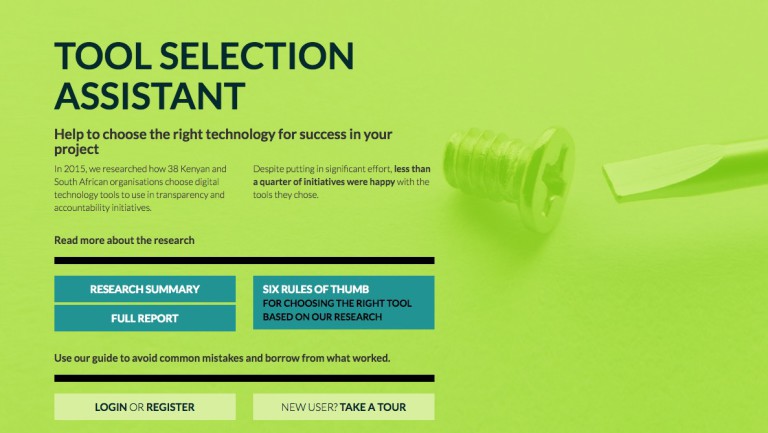Join our community call about the intersections of digital rights, tech, and climate justice, on October 18!
Research
Upcoming community call & new research: biometrics in the humanitarian sector
Join our community call on our new research on biometrics in the humanitarian sector. If you’re a humanitarian practitioner or just interested in biometrics and responsible data, please join our upcoming Community Call, where we’ll be introducing the project and hearing from practitioners on the theme.
From shared concerns to productive frictions: on the intersections of digital rights and environmental/climate justice
Here are some early findings from our research on intersections between digital rights and environmental/climate justice.
Digital rights and environmental justice: Intersections and funder strategies for better futures
We are excited to announce a new research project that will look at some of the areas where digital rights and environmental justice intersect.
Reimagining digital ID systems rooted in justice
We are starting a new project to reimagine digital ID systems rooted in justice. Join our community calls to share what’s happening around digital ID in your community.
Strengthening intersectional approaches to Covid-19 data and digital rights advocacy
For this project, we are looking at how social justice communities are faring in terms of data and digital rights in relation to the pandemic.
New research on the ethical implications of predictive analytics for children’s outcomes
In collaboration with UNICEF, we are starting a new research project to assess the use of predictive analytics for children.
A justice-based approach to research and learning
We will situate all our key research questions about the intersection of tech, data and civil society within a justice framework that examines or surfaces power dynamics.
How we approached consent and security in our digital ID research
العربية | Español | Français At the outset of our research project on digital ID, we aimed to design consent and data management processes that uphold the dignity and rights of the communities in our study. As we’ve noted, it is often unclear whether communities purportedly being offered “informed consent” actually have the space to […]
Opportunities for the organisational security community
In the context of increasing rates and sophistication of attacks from state and non-state actors, organisational security (orgsec) practitioners offer essential support for many civil society organisations and communities. However, these practitioners are often working independently, without the security and opportunities for learning and development that working for an organisation can provide. As such, practitioner […]
Digital ID: What we’ve been up to and where we’re headed
Last September, we started working on a research project looking at the effects of digital identification on local communities. We’ve been in touch with many people, organisations and institutions who are thinking about digital identification systems in different ways, and we’ve developed some exciting research methods. We’re excited to share a bit of what we’ve […]
Investigating Digital Tool Re-Use Among UK Organisations
We’re excited to share that over the next year, we’ll be carrying out a new research initiative looking at how UK charities* re-use existing digital tools for service delivery. We’ll be working as part of a wider project, Digital Sparks, to support UK charities with digital service delivery. Our partners include: CAST, Dot Everyone, Cassie […]
Technology and responsible data for migrant workers
We conducted research and gave input to work done by Bassina Farbenblum, Laurie Berg and Angela Kintominas, and the final report from the initiative is now published by the Migrant Worker Justice Initiative, entitled Transformative Technology for Migrant Workers.
Can beneficial ownership transparency really be compatible with data protection?
This blog post was co-written by Zosia Sztykowski, Project Lead, OpenOwnership and Tom Walker, Research Manager, The Engine Room. It originally appeared on the Open Government Partnership stories blog. In recent years, we’ve seen significant progress on clamping down on the abuse of anonymous company ownership through beneficial ownership transparency, both from international bodies like […]
Collaborating to monitor abuse of power: why it matters and how it can be done
In the past few years, Latin America has been hit hard with corruption scandals.The alarming Lava Jato scandal revealed how companies used networks of offshore entities across the region to launder money and fund bribes. In Peru alone, the Odebrecht company confirmed to the US Department of Justice that they made corrupt payments to Peruvian […]
Biometrics in the humanitarian sector
Over the past few months, we at The Engine Room, together with consultant Carly Nyst, have been working with Oxfam to better understand how biometric technologies are being used in the humanitarian sector and what we can learn from those experiences.
Announcing our new research on Responsible Data implementation at Oxfam
To get an understanding of this, we carried out interviews with Oxfam staff and reviewed of responsible data resources created by Oxfam, many of which have been put online and made available to others to use.
If the tool fits… launching our research on how transparency and accountability initiatives choose technology tools
Today, we’re launching our research into how transparency and accountability initiatives in Kenya and South Africa choose digital technology tools. We’re publishing it all on this microsite: https://toolselect.theengineroom.org. To find out more about what’s in it, read on:


















